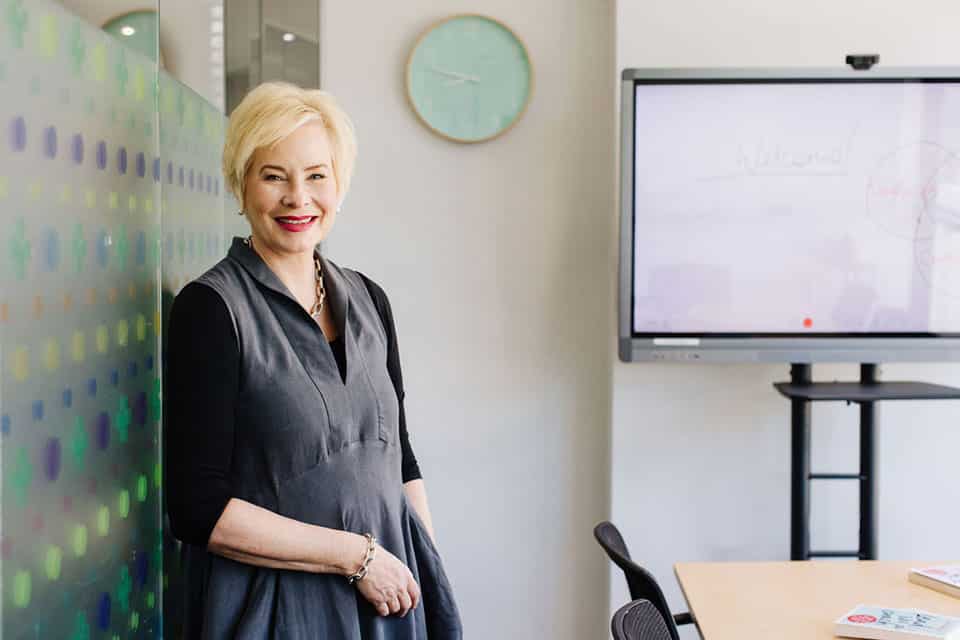Why We Need To Recognise Our Own Gender Bias

Traditionally, we expect women to be warm, kind, gentle, and understanding while we expect men to be tough, competitive, assertive and competent. We associate women with nurturing, support and lower status roles while we associate men with power, authority and higher status. We like women and respect men. While these are traditional views, and some of us don’t like them much, they persist.
We don’t have to agree with these gender-based expectations for them to affect our decisions. Nobel prizewinning psychologist Daniel Kahneman has alerted us to the fact that our brains work on two very different levels, ‘fast’ and ‘slow’. While we believe that we know what we are thinking, we often don’t. Most of our ‘mental work’ occurs in the fast lane of intuitions and impressions. Most decisions are made without awareness.
A hefty part of the gender bias problem is that it’s not always possible to know when you’ve made a decision, let alone whether it was fair or biased.
It’s one thing to make decisions and not know it. It’s even worse to make decisions you don’t know you’re making and not agree with them. Let me unpack that with my recent embarrassing example. I was walking along an airport concourse and saw two pilots, one female and the other male. There was a significant height difference between them. What flashed into my mind was: ‘She can’t be a pilot, she’s not strong enough.’
Whoa! I had to quickly apply the brakes to my fast thinking – I made the judgement before I was aware I was making it and I most certainly didn’t agree with it.
About 75 per cent of us use traditional gender roles when we make decisions – they are out of sight, but not out of mind. I know I do, so that means I can – usually – catch myself in the act. Unconscious bias isn’t something that men do to women. It is based on expectations that are unknowingly held by men and women.
Bias hinders women’s progress in organisations in these key ways:
- You can’t be what you can’t see. Affinity bias makes it hard for women to get into male-dominated jobs and organisations. We like people who are just like us and are more influenced by people who are similar rather than different. This can have a significant impact on career choices. If I can see ‘people like me’ in a particular career or job role, I’ll choose that path. If I can’t, I won’t.
- You’re damned if you do and doomed if you don’t. Women’s progress is limited by expectancy bias. Women are commonly demoted to roles that are in keeping with traditional expectations. Female doctors are often mistaken for nurses, female lawyers for paralegals. We do not expect women to hold senior roles, despite the fact that, increasingly, they do.
Women, even very senior ones, are still expected to do the ‘office housework’. When a man offers to help with these tasks, we praise him for his contribution. His help is less expected and more visible. If a woman declines to help, she faces backlash; she’s selfish. When a man says no, there’s no similar backlash; he’s busy. - What you see is not what you get. Competence is how good you are at something. Confidence is how good you think you are at something. How accurate are people at assessing their own competence? Not very; men are much more likely to over-rate themselves than women are. If a man says he’s got what it takes and a woman says she’s not sure she has, he’s more likely to be chosen, but she’s more likely to be the better candidate.
- The more certain we are, the more likely we are to make biased decisions. Our bias for certainty means that we tend to think that our decisions are much better than they are; we tend to dismiss the possibility that we are biased. Frustratingly, because biases operate unconsciously, it’s hard to know when we are in their grip. Getting proof is tricky, and happens in retrospect, if at all.
Whether you know you are biased matters less than accepting that you are likely to be biased. We could all do with being more modest, less certain, about our decisions. That’s a great way to work on Each for Equal.
Written by Dr. Karen Morley. Have you read?
World’s Best Countries For Education System.
World’s Best Countries For A Child To Be Born In.
World’s Best Countries For Its Citizens To Live.
World’s Best Countries For Cultural Influence.
Add CEOWORLD magazine to your Google News feed.
Follow CEOWORLD magazine headlines on: Google News, LinkedIn, Twitter, and Facebook.
This report/news/ranking/statistics has been prepared only for general guidance on matters of interest and does not constitute professional advice. You should not act upon the information contained in this publication without obtaining specific professional advice. No representation or warranty (express or implied) is given as to the accuracy or completeness of the information contained in this publication, and, to the extent permitted by law, CEOWORLD magazine does not accept or assume any liability, responsibility or duty of care for any consequences of you or anyone else acting, or refraining to act, in reliance on the information contained in this publication or for any decision based on it.
Copyright 2024 The CEOWORLD magazine. All rights reserved. This material (and any extract from it) must not be copied, redistributed or placed on any website, without CEOWORLD magazine' prior written consent. For media queries, please contact: info@ceoworld.biz
SUBSCRIBE NEWSLETTER








